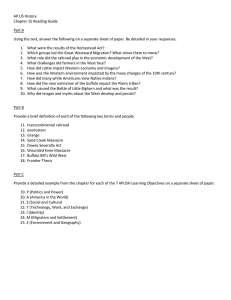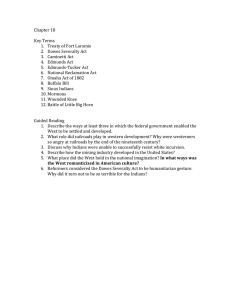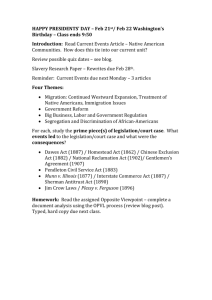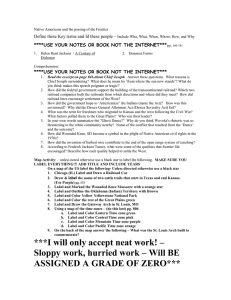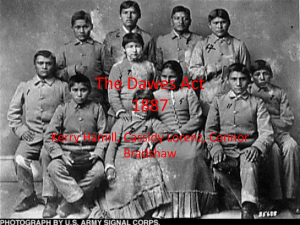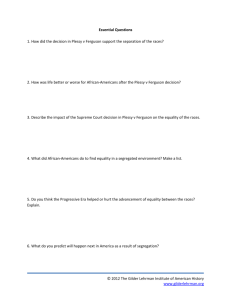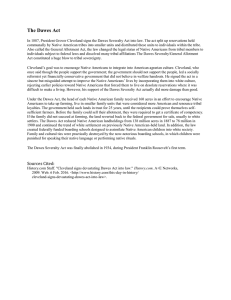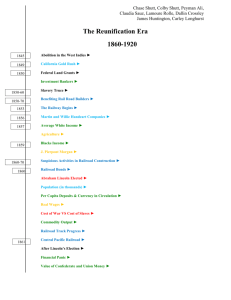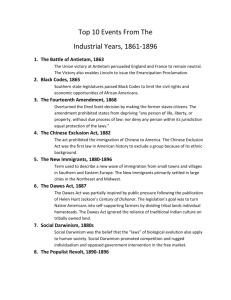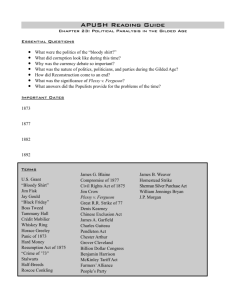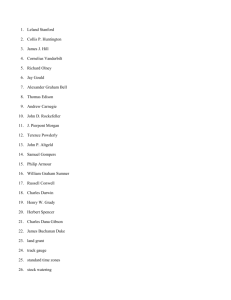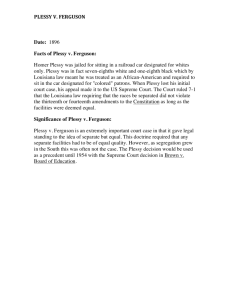Name:
advertisement
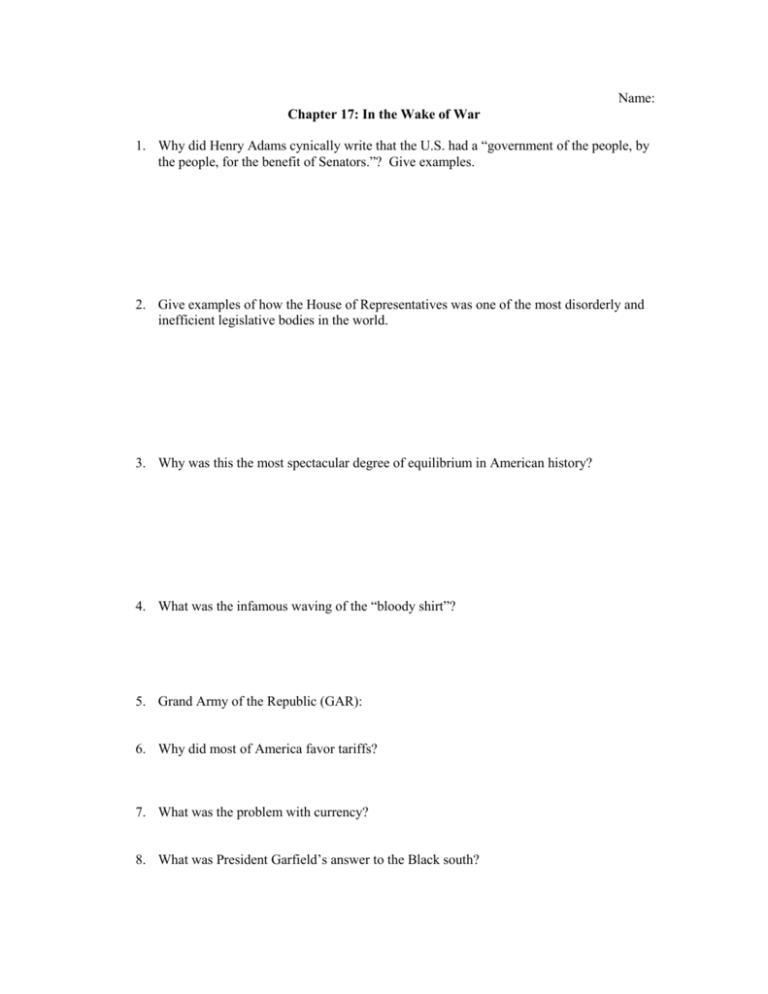
Name: Chapter 17: In the Wake of War 1. Why did Henry Adams cynically write that the U.S. had a “government of the people, by the people, for the benefit of Senators.”? Give examples. 2. Give examples of how the House of Representatives was one of the most disorderly and inefficient legislative bodies in the world. 3. Why was this the most spectacular degree of equilibrium in American history? 4. What was the infamous waving of the “bloody shirt”? 5. Grand Army of the Republic (GAR): 6. Why did most of America favor tariffs? 7. What was the problem with currency? 8. What was President Garfield’s answer to the Black south? 9. Write the outcome/significance of each of the following court cases: a. Hall v. De Cuir (1878) b. Civil Rights Cases (1883) c. Plessy v. Ferguson (1896) 10. As a reaction to Plessy v. Ferguson, the South imposed total segregation. List examples 11. Please explain why Booker T. Washington was a “reasonable” champion for Blacks? What was the Atlantic Compromise? 12. Critical Thinking: In your opinion, was the frontier exceptionally violent? What is the standard way that federal crime statistics are now expressed? 13. Give two ways the Chinese Americans were racially targeted in the 1870s and 1880s 14. On a positive note, what kind of things did whites give Indians? What was the most important? 15. How was Thomas Fitzpatrick’s policy of “concentration” designed to help the native tribes? 16. What happened at Sand Creek in 1864? 17. In 1867, what new policy replaced “concentration”? 18. Why did the U.S. government outlaw the ghost dance? (Caption on pg 460) 19. Online Research: What really happened at Wounded Knee? 20. How does the Dawes Severalty Act of 1887 sound like a good deal for Native Americans? 21. Why was the Dawes Severalty Act of 1887 such a disaster for Indians? 22. What were the demographics of Leadville, CO in 1890? 23. Boomtowns! The year is 1888 and you are headed west. Where are you going to settle? Why? More importantly, you are armed with your historical knowledge from reading pages 464-465. Now, you must decide what kind of occupation you are going to partake in order to earn a hefty profit. Explain your answer. 24. Big Business: How did the Timber and Stone Act of 1878 benefit big business? 25. Give an example of a Bonanza farm. 26. Please compare and contrast the (positive) benefits of the land-grant system for railroad expansion and the corruption (negative) that accompanied Western railroad building. Positive Negative 27. Why was James J. Hill’s Great Northern railroad the only transcontinental line to not go bankrupt during the depression of the 1890s? 28. Explain what made open-range ranching so profitable? 29. Who was Nat Love ( A.K.A.“Deadwood Dick”, “Red River Dick”)? 30. The introduction gave two different historical titles for this era. After reading this chapter, which title do you prefer for post-Reconstruction America… The Gilded Age or the Great Barbecue? Why? Do you have a better/more original title?
